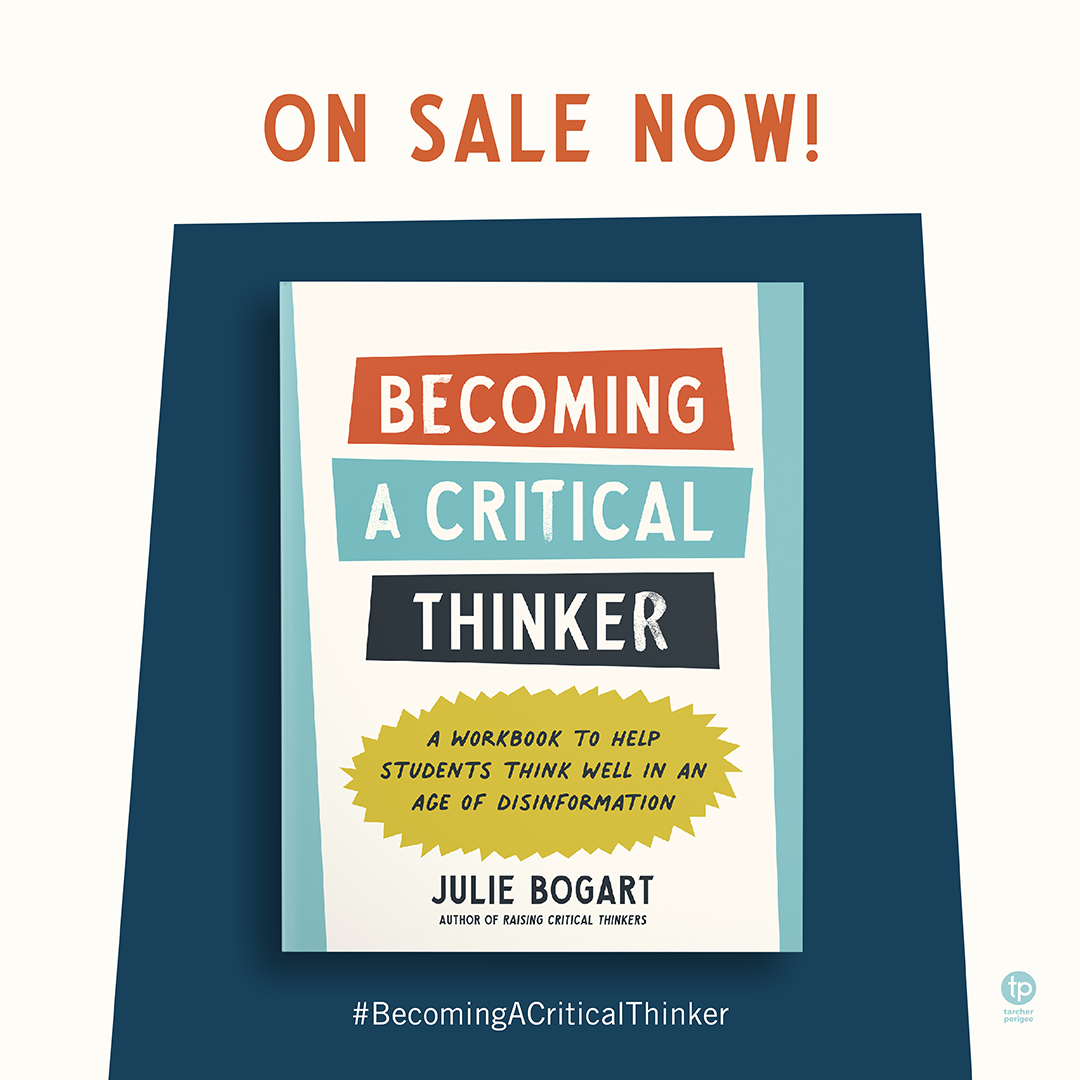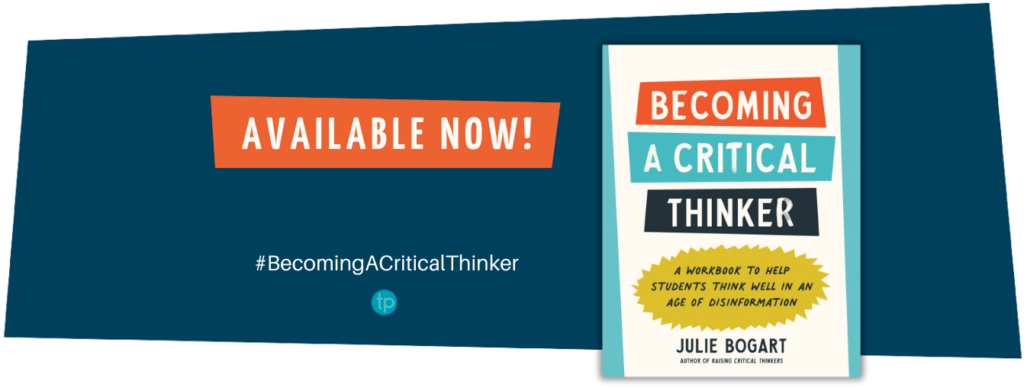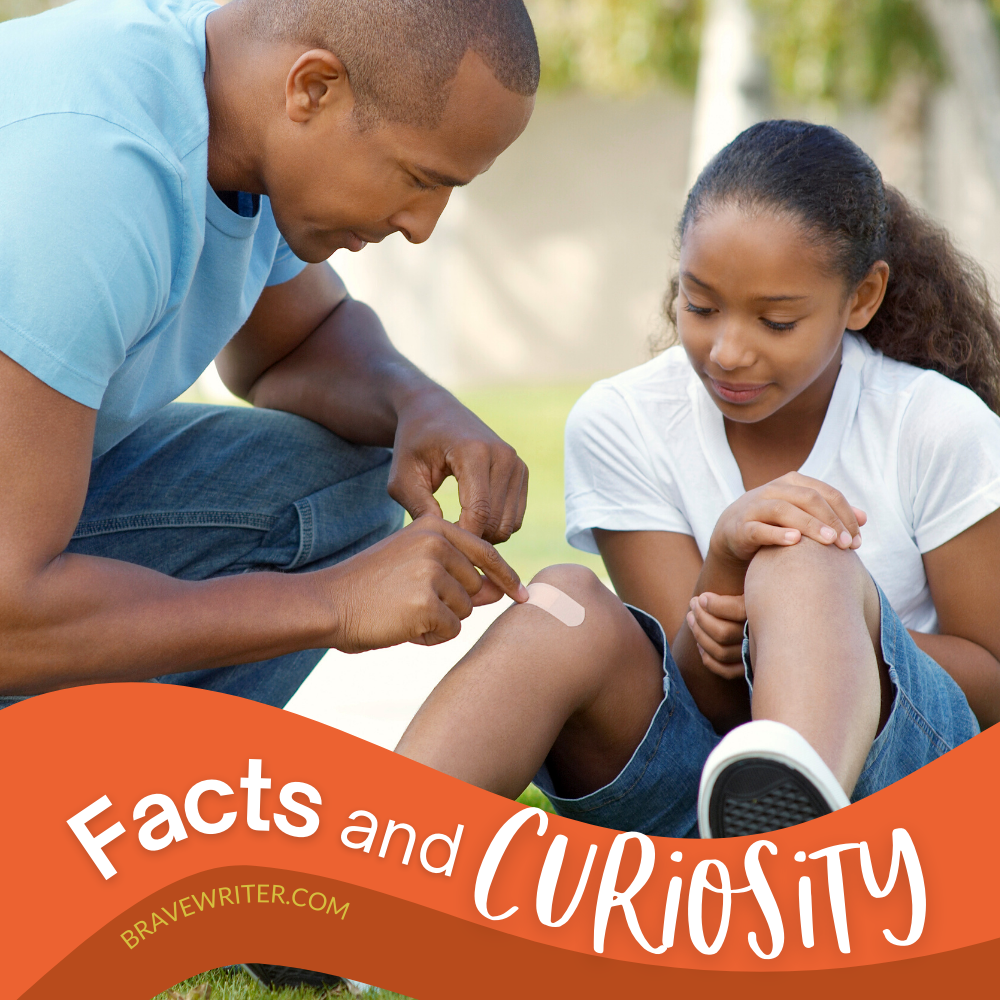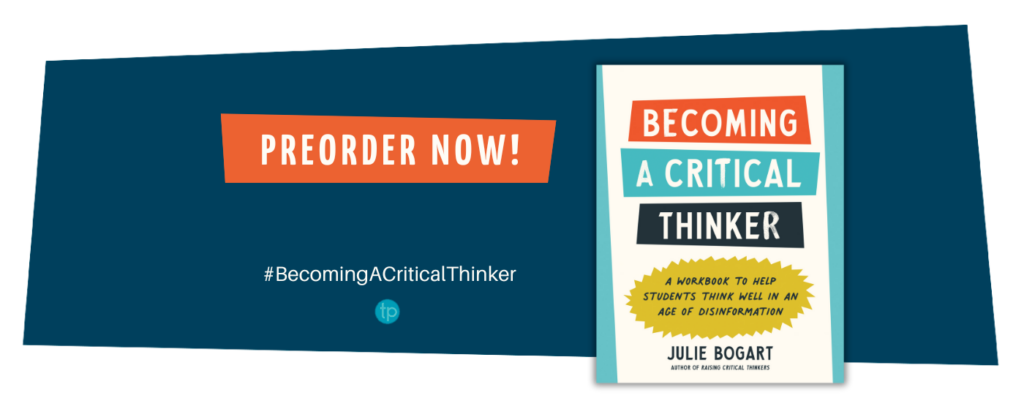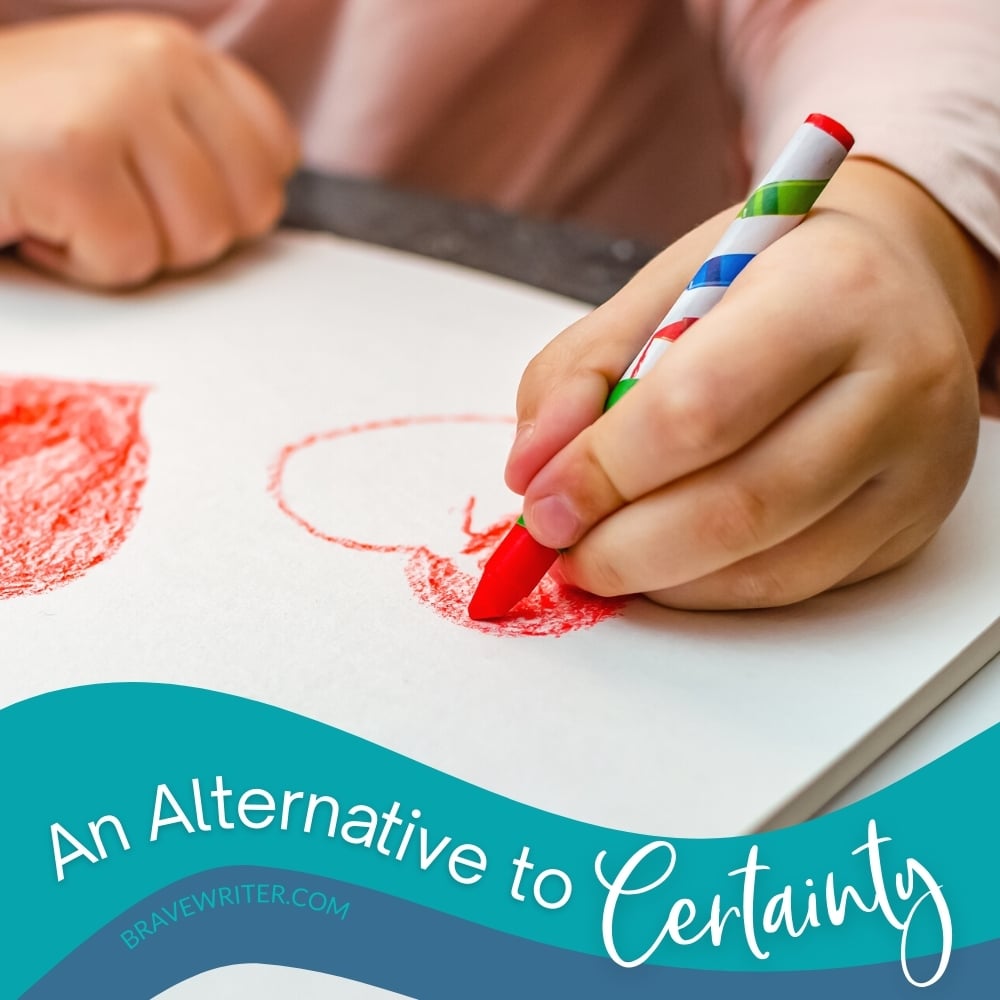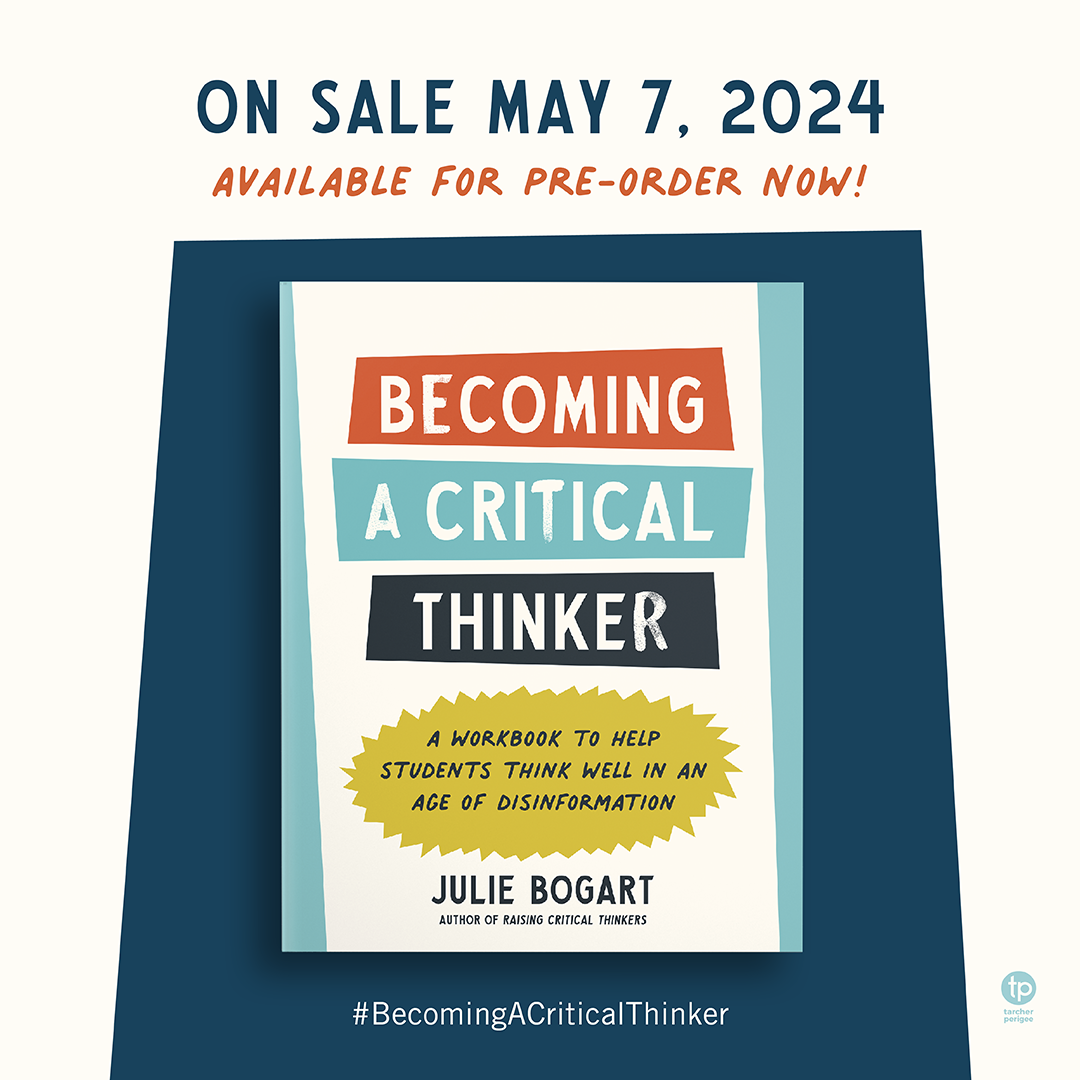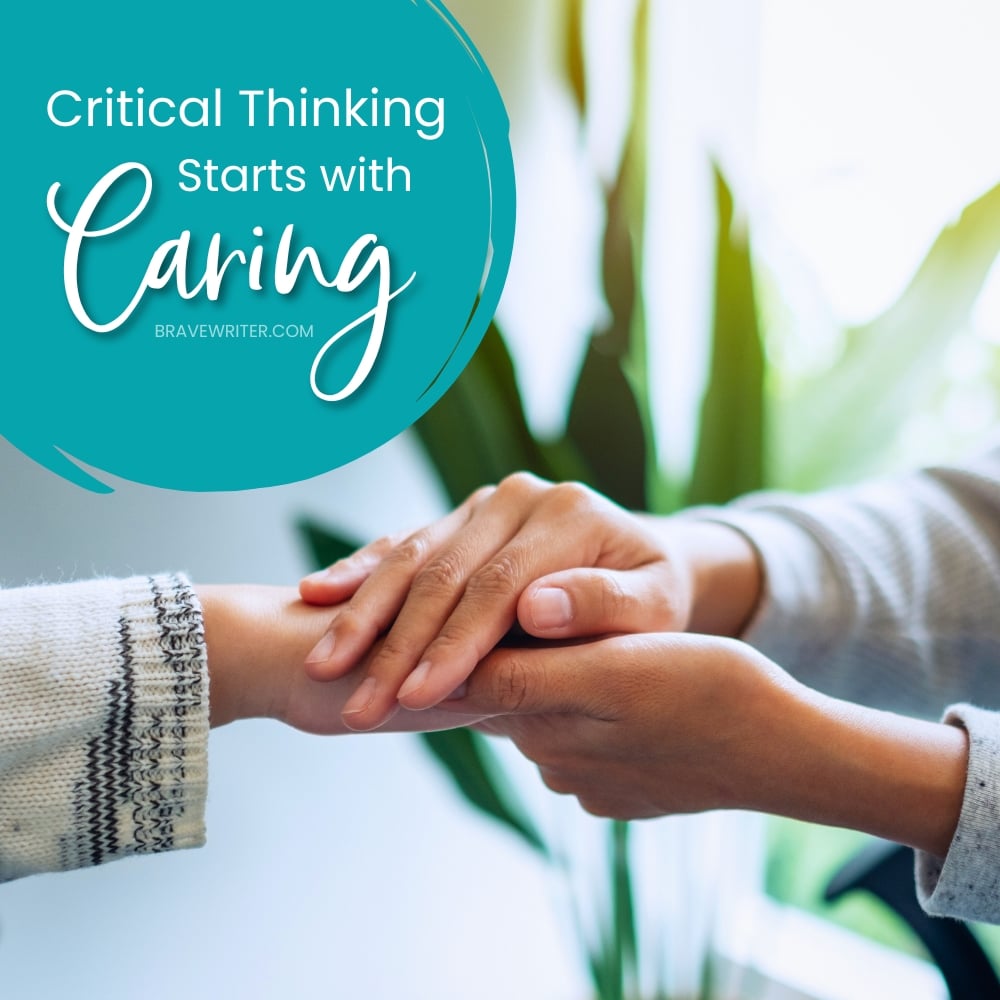
Have you ever felt like someone was pressuring you to take their viewpoint? They may:
- use coercive language,
- shame you,
- be condescending,
- or criticize your character.
That’s not critical thinking. That’s group think. That’s the pressure to pick sides or to prove your loyalty.
I use these five principles to help me when I feel slammed by pushy messages, comments, or remarks from family or friends.
5 Principles
- Critical thinking starts with caring.
- We believe we’re sharing facts, when in fact (ha!) we’re sharing interpretations of facts.
- Knowing you’re biased is half the journey to self-aware critical thinking.
- Underneath our desire to have the correct point of view is a drive for sameness—the certainty of agreement rather than the discomfort of difference.
- Deeper thinking depends on the ability to expand the field of vision, to notice our emotional reactivity, and to assess the judgments we’ve made on that basis.
My book for parents, Raising Critical Thinkers, and workbook for teens, Becoming a Critical Thinker, were written for these exact reasons. Thinking well is risky, emotionally volatile, and deeply important.


